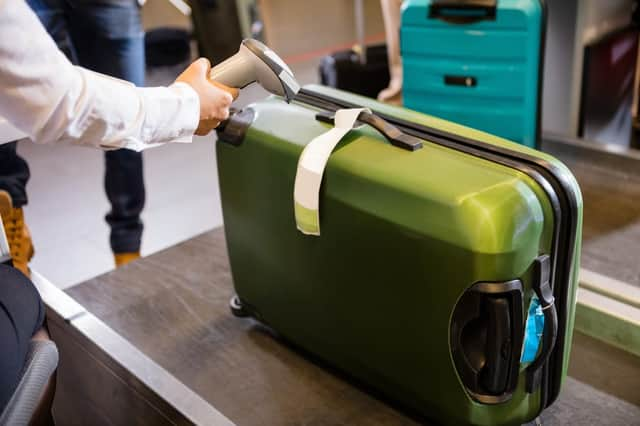Here's why you may not be allowed to take hand luggage on flights anymore - and other flight rules explained


Brits looking to travel abroad when lockdown restrictions ease will have to follow new guidance the government has issued plane passengers.
The guidelines, which were issued on 11 June, include wearing face masks, checking in luggage and minimising any hand baggage.
Here’s what you need to know.
What does the new guidance include?
Advertisement
Hide AdAdvertisement
Hide AdUnder new holiday flight rules issued by the government, passengers on planes will be “encouraged” to check in all luggage, in order to help stop the spread of coronavirus.
However, airlines currently charge additional fees for putting luggage in the hold and it's unclear whether these fees will be waived.
A 20kg check-in bag with Ryanair costs £25 if purchased while booking the flight, and costs £40 after the booking is made.
Hold luggage up to 15kg with easyJet can cost between £6.99 - £34.99. Hold luggage up to 23kg can cost between £9.49 - £37.49, but costs £40 at the bag drop desk at the airport and £50 at the boarding gate.
Advertisement
Hide AdAdvertisement
Hide AdThe guidelines state: “You are strongly encouraged to check in baggage to the aircraft hold and minimise any hand baggage.
“This will speed up boarding and disembarking, and minimise the risk of transmission.”
Travellers must also wear face coverings at all times and remain seated as much as possible during the flight.
Airlines are also being encouraged to reduce the number of face-to-face interactions that take place between staff and passengers.
Advertisement
Hide AdAdvertisement
Hide AdThis new guidance is for all UK airlines to follow when it is safe to resume flying.
Only wrapped snacks and drinks will be available, and travellers will also have to request access for the toilet.
However, easyJet has said no food will be offered.
Airlines are also being encouraged to extensively clean the aircraft, alongside increasing the availability of handwashing and hand sanitiser.
Ryanair has previously said that it may check passengers temperatures before flying, once travel resumes.
‘A positive next step’
Advertisement
Hide AdAdvertisement
Hide AdTransport Secretary Grant Shapps explains how the new guidance ensures both safety and sustainability for the aviation industry.
Mr Shapps said: “Today’s guidance is a positive next step towards ensuring a safer and more sustainable aviation sector.
“The Government’s advice currently remains to avoid all non-essential travel, but today we are taking the necessary steps to ensure a framework is in place for the aviation industry to bounce back when it is safe for restrictions on travel to be lifted.”
Currently, only essential travel is allowed, but the Foreign Office has said that the advice is under review.
Advertisement
Hide AdAdvertisement
Hide AdTim Hawkins, chief strategy officer at Manchester Airports Group, which owns and operates Manchester, London Stansted and East Midlands airports, said: "This new guidance provides the basis for the restart and recovery of the UK aviation industry – it offers clear information for us, our passengers and our airlines on the steps needed to create a safe travel experience.
"The guidance is the result of strong collaboration between government and the aviation industry, drawing on advice from independent medical and scientific experts who have looked specifically at what safety measures are needed at each stage of the travel process.”